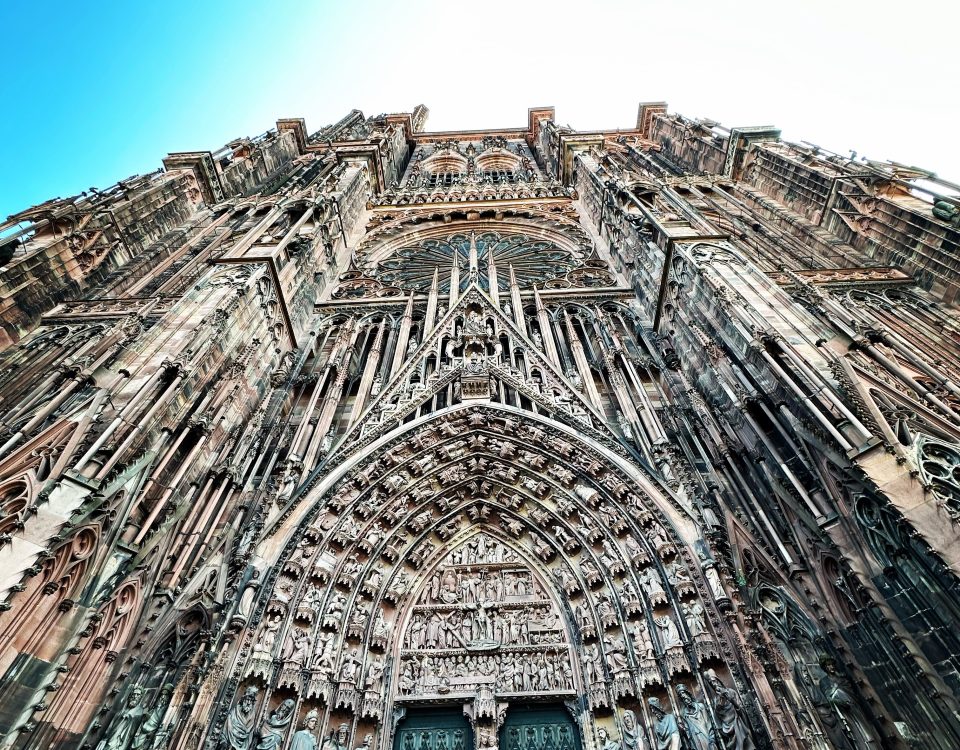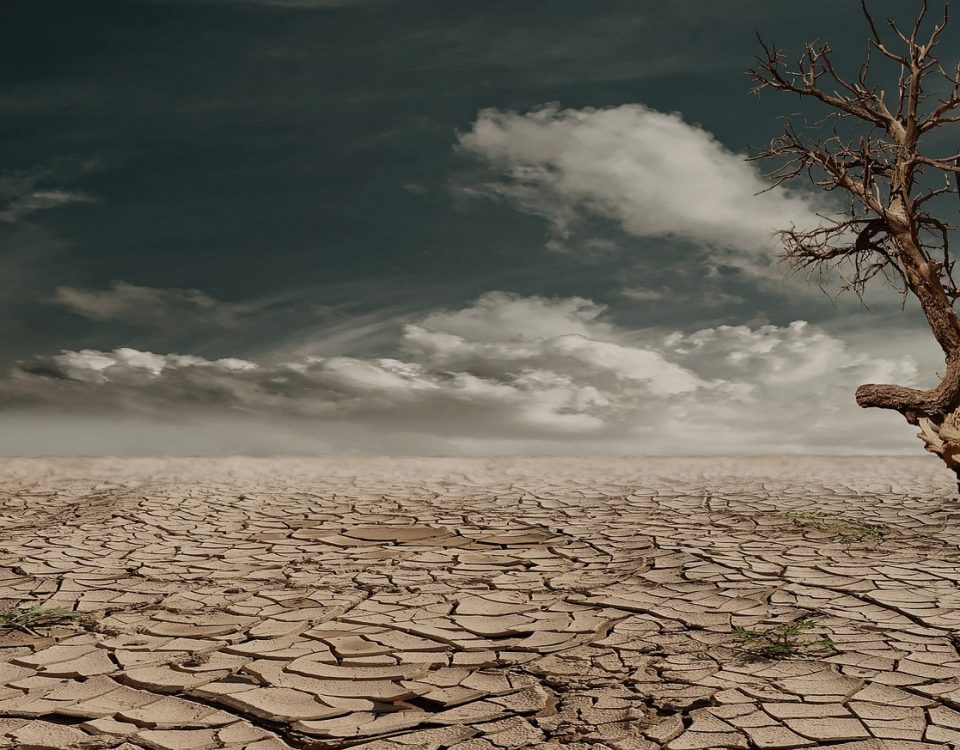Enslaved in Egypt, when God told the Israelites to celebrate the Passover meal, he made it clear to them that it was going to be fast food.
These were God’s instructions: “you are to eat it…like those who are in flight.”[1] The bread was unleavened because, as the story goes, they had been “rushed out of Egypt and had no opportunity to prepare.”[2] In their liberation, at the beginning of their Exodus, the Israelites were fed, and then they were rushed out of Egypt, out of centuries of bondage. We know the rest of the story, of course, wandering the desert without much sense of direction, but nonetheless guided by God.[3] We also know Pharaoh’s anger was kindled, and that he sent his armies in pursuit, frightening the Israelites out of their minds.
Recalling the story now, we may think the Israelites were at this moment filled with some sort of dramatic adrenaline, enveloped in some sort of collective swashbuckling spirit. We recall the story today like an adventure; however, for the Israelites themselves, it was a moment terror, bitterness, and second-guessing. They were being saved by God, but in the very moment of their salvation, they bitterly cried out to God, questioning his plan. “Why did you do this to us?” they asked the Lord. Why did God take them out of Egypt—to have them die in the desert?[4] This was their fear and their complaint at the very moment of their salvation—like a victim who wants to return to her abuser, so did the Israelites want to go back to Egypt. But Moses, the man called by God, said to them, “Fear not! Stand your ground…These Egyptians you see today you will never see again.”[5] And then the waters opened up, Israel crossed over, and Pharaoh’s chariots were thrown into the sea.[6] Such is how God saved his fragile and frightened people, despite their grumbling and doubt and fear.
This story is of course fundamental to both Jews and Christians, revealing something basic about God and his mercy, our frailty, and our salvation nonetheless. This story also frames the story of Jesus as Matthew’s gospel makes clear. Matthew begins his gospel proclaiming Jesus, “the son of David, the son of Abraham,” heir and fulfillment of the deepest promises of Israel.[7] Matthew portrays Jesus in explicitly Moses-like terms. He tells us Jesus sojourned in Egypt, only to return to the Promised Land at the Lord’s command.[8] Like Moses on Sinai, this Jesus ascended a mountain to deliver the new law: “Blessed are the poor in spirit, for theirs is the kingdom of heaven.”[9] Like the ten wonders done in stubborn Egypt, Matthew seems to offer ten miracles of healing and comfort, reported in rapid succession.[10] As in Egypt of old, Matthew is trying to say, God is again about the business of saving his people—this time in Jesus. As Moses ratified the covenant with an altar made of twelve stones representing the twelve tribes of Israel, those descendants of Jacob; and as Joshua called out twelve men from each of the tribes before the ark crossed through the Jordan, so too does Jesus call together his twelve disciples, giving them “authority over unclean spirits.”[11] When looked at broadly, Matthew’s point is clear: the story and hope of Israel unfolds in the life of the Nazarene—God rescuing his people again in this peasant named Jesus, this hidden king, this new Moses.
This is quite a message to say the least. The God of Israel is at work in Jesus of Nazareth—this poor and provocative man who talks like God and feeds like God. Hardly believable most think. The confusion and divisiveness of the parables is understandable—so too the faithless forgetfulness of the disciples, not believing that Jesus could supply bread for his people in so deserted a place.[12] These first followers of Jesus—and the Pharisees too, yet in a more hardened manner—stood in that venerable tradition of complaint and misunderstanding and of low expectations occupied so long ago by the Israelites, and now in these latter days by us. This seems simply to be the way we humans are. God gives and we grumble. God saves and we doubt. We struggle to believe, struggle to trust. Like a wounded child, fighting her father’s healing hand, we have difficulty seeing God, difficulty believing him—even at the very moment of grace. But, of course, this only makes the mercy of God’s grace shine out even more. Because, you see, no matter our doubt, no matter our grumbling, God still saves. No mother leaves her child wounded just because the child resists her healing hands, nor does God leave us just because we resist him. We struggle—struggle to believe, to be obedient—and that’s okay. It’s not the end of your spiritual life just because you doubt and struggle. Your struggle is more likely a sign of God’s salvation than anything else. You see, the doomed are not troubled. The doomed do not struggle. Only the faithful struggle. This is the merciful point: while we struggle, he still saves.
Such is the beauty of today’s gospel. Like the Israelites, having been fed the unleavened bread and then quickly moved on to the shores of the sea, so too, after the disciples’ miraculous meal, they are told (and Matthew adds the word “immediately”) to get in the boat and cross the Sea of Galilee.[13] And like the Israelites before them, they are in for a wild ride—no army, but a violent storm. And they are, understandably, quickly frightened.
But how like our lives too! Here in the storms and in the waves, we see the tumult of the world, our fears, and our sins. Is it not true that even after receiving the holy bread of Holy Communion, the body of Christ, here in this holy church, we go out again into the rough seas of our lives? Isn’t it true that after we have been given the bread of life and dismissed with the words “Go in peace,” we fall victim to the abuse of our enemies, victim to the sins of lust, greed, gossip, anger, or whatever your particular moral poison happens to be? Isn’t it true that we labor amid the waves and chaos of our sins for what seem an unbelievably long time? And isn’t it true that when Jesus does come into the chaotic scenes our lives, we, because of the haze and confusion of it all, sometimes mistake Jesus for something like a ghost, unable to recognize him? Isn’t it true that in the Israelites’ grumbling and in the disciples’ fear and trembling we can so readily see ourselves? Isn’t it true that the waters are troubled for us as well, and that we too are looking for Jesus.
But what does Jesus do? We speak confusion and untruth: “It is a ghost!” the disciples yelled out. Yet, answering us, Jesus speaks comfort and truth: “Take courage,” he says, “it is I; do not be afraid.” The God of our struggles comes to us and saves us just as he always has. And here we draw lessons from Peter. Often when buried in the chaos of our lives, we pray to God to fix this or fix that: “God, if only you will do this, or grant me that,” we pray. We do not ask for God, really; we ask for his benefits. Peter shows us a different way to pray in chaos. When you are in the troubles of your life, seek God first before you seek out his benefits. “Lord, if it is you, command me to come to you,” Peter prays.[14] Amid the chaos of your life, what matters first and what matters most is Jesus. You need first to pray to be with him; only then will what you ask for be given to you—after you have sought first the kingdom and its righteousness.[15]
And it is this prayer for union that is given the invitation, “Come.” The invitation arrives to us from across the waves, the call sounds above the chaos of our lives: “Come.” Like Peter, you and I are being called to be with Jesus, and it may require an act as remarkable as walking on water. Maybe being called to be with Jesus, you’re being called to leave a job, a bad relationship, a bad business relationship. Maybe that call seems hard, almost impossible, but we can do it—we can do what is impossible by ourselves alone because Jesus has called us! We can do all these things in him who strengthens us.[16] We need only to desire God’s healing hand and resist no longer.
But, of course, we are frail, no different from Peter. When you and I step out in faith in this life in Christ, we will sometimes worry and sometimes question the Lord’s invitation and plan. This is just how we will be until we take hold of the prize for which Jesus took hold of us.[17] But as you struggle to respond to God’s call, whatever it is for you, notice this: Peter did not begin sinking and then become frightened; rather, he got frightened and then began to sink.[18] The Israelites thought they were dying in the desert not because they were thrown into the wilderness by some sick God, nor was Peter sinking because Jesus asked him to do something impossible. Their terror and Peter’s drowning were the demons of their own fear. So too with us: our failures in fulfilling the will of God do not mean that his will is impossible to obey. It means we have fallen back into the sad fears of our fearful lives, drowning like Peter.
Yet, even here there is mercy upon mercy. “Lord, save me!” Peter cries out.[19] This should be your prayer and mine moment by moment and breath by breath, “Lord, save me!” And immediately Jesus gave his saving hand to that falling disciple. Like a true God of hope, Jesus saved Peter from drowning. “Why did you doubt?” Jesus asked Peter gently.[20] He asks us the same. Why do we doubt? Why does fear move us more than Jesus?
This was not just Peter’s struggle of course, but that of the other disciples too—just as it was the Israelites’ struggle, longing for home and promise. And this is my struggle too, and I am sure it is yours. This is life. Life is a struggle. But hear the gospel: God has come to us again in Jesus. He invites us to come to him, no matter the chaos in our lives. And even when we struggle and sink—weak in faith or heavy with sin—he does not abandon us; rather, when we call upon him, he gives us his hand. He pulls us up and gets into the boat with us, and he calms the storm, bringing us safely to shore. This mercy stunned the disciples. Matthew even says that they worshipped him. They even called him the “Son of God”—because of this mercy on the water, mercy meant for us, mercy meant for you.[21]
[1] Exodus 12:11
[2] Exodus 12:39
[3] Exodus 13:17-22
[4] Exodus 14:11-12
[5] Exodus 14:13
[6] Exodus 15:4
[7] Matthew 1:1
[8] Matthew 2:13-23
[9] Matthew 5:3; Exodus 19-20
[10] Matthew 8-9
[11] Exodus 24:4; Genesis 49; Joshua 3:12; Matthew 10:1
[12] Matthew 13:10-17; Matthew 14:17
[13] Matthew 14:22 (Καὶ εὐθέως)
[14] Matthew 14:26-28
[15] Matthew 6:33
[16] Philippians 4:13
[17] Philippians 3:12
[18] Stanley Hauerwas, Matthew, 141
[19] Matthew 14:30
[20] Matthew 14:31
[21] Matthew 14:33
© 2020 Rev. Joshua J. Whitfield










